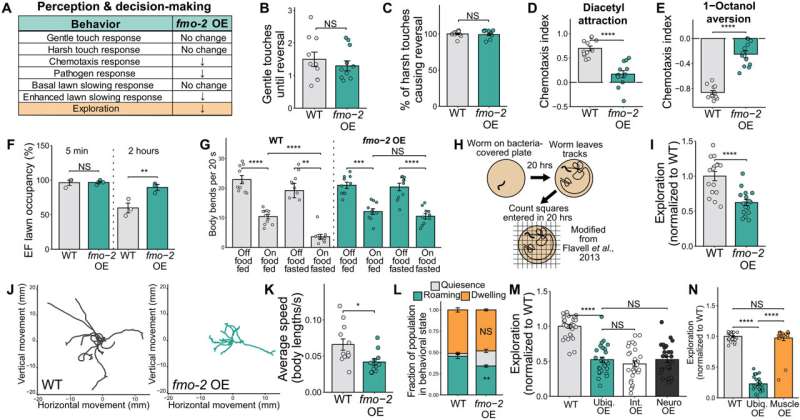Research from the lab of Scott Leiser, Ph.D., of Molecular and Integrative Physiology Department at University of Michigan Medical School, uncovers interesting connections between a longevity gene, behavior and the environment. The findings bring scientists closer to understanding the underlying biological mechanisms that might be exploited to extend life without the downsides.
The first study, appearing in PNAS, uses a worm (the popular research model species C. elegans) to further explain the effect of environmental cues and food access on longevity.
“Believe it or not, most of the central ideas and types of metabolism we study are conserved from worms to people,” said Leiser. “When we perceive the environment, we release hormones like adrenaline or dopamine. Worms do the exact same thing; their neurons respond to the environment and change their physiology accordingly.”

